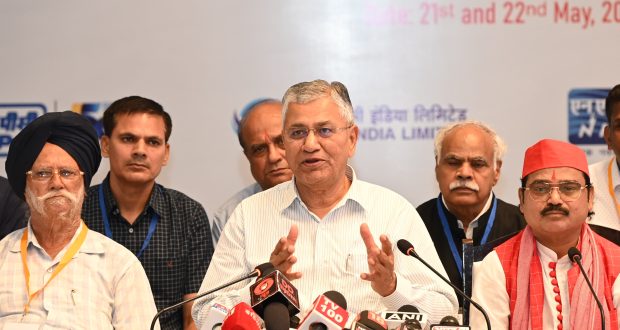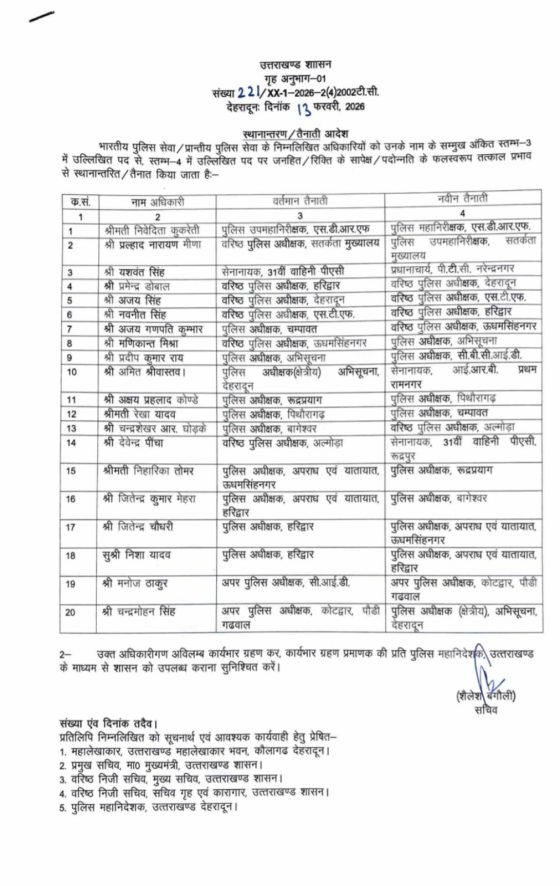DAINIK NATION BUREAU/DEHRADUN
The Joint Parliamentary Committee (JPC) has asked all states, including Uttarakhand, to submit comprehensive reports detailing the advantages and challenges of conducting One National One Election. The committee formed by the Government of India to study the feasibility of One Nation, One Election. The committee has been granted a period of six months for the states to submit their findings, emphasizing that the issue pertains to national interest and must be examined thoroughly.
The committee, currently holding consultations across the country, began its series of meetings on May 21 to gather feedback on the Constitution (129th Amendment) Bill 2024 and the Union Territory Laws (Amendment) Bill 2024. These amendments are being considered to pave the way for synchronized elections for the Lok Sabha and State Legislative Assemblies.
The JPC Chairman PP Chaudhary, speaking to the media at the conclusion of the two-day meeting in Uttarakhand, noted that so far, Maharashtra and Uttarakhand have presented feedback. “Simultaneous elections were a norm until 1967, but that cycle broke. Since 1994, there have been efforts to restore it, which have not succeeded until now. This time, we are working seriously toward making a transformational change in India’s electoral structure,” he said.
He added that simultaneous elections could potentially save the economy up to ₹5 lakh crore — approximately 1.6% of the country’s GDP — by reducing frequent disruptions to governance and administrative machinery. “During elections, nearly 4.85 crore government personnel are involved in election-related duties, which impacts industries and services. This must be addressed.”
The JPC is also considering April-May as the most appropriate period for holding simultaneous elections, aligning with the historical trend of Lok Sabha polls during this season.
The committee assured that every technical and constitutional challenge will be addressed. Solutions are being explored for mid-term dissolutions — with suggestions to hold elections only for the remaining term, not a full five-year cycle.
The 41-member committee, which includes two non-voting nominated members, interacted with Uttarakhand government officials, senior advocates, Bar Council members, IIT Roorkee representatives, and local leaders to gather diverse viewpoints.
Chairman Chaudhary stressed, “There is no fixed deadline for submitting our report. We aim for solid, thoughtful recommendations — not rushed conclusions — as this matter will define the future of India’s democracy.”
 Dainik Nation News Portal
Dainik Nation News Portal


